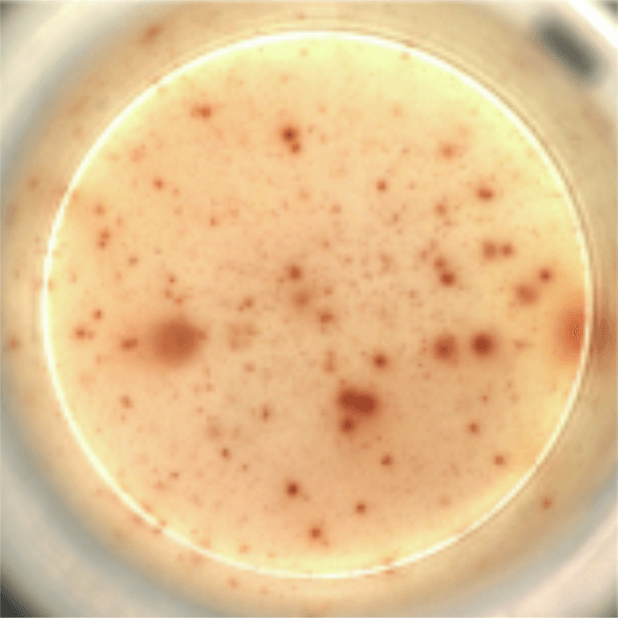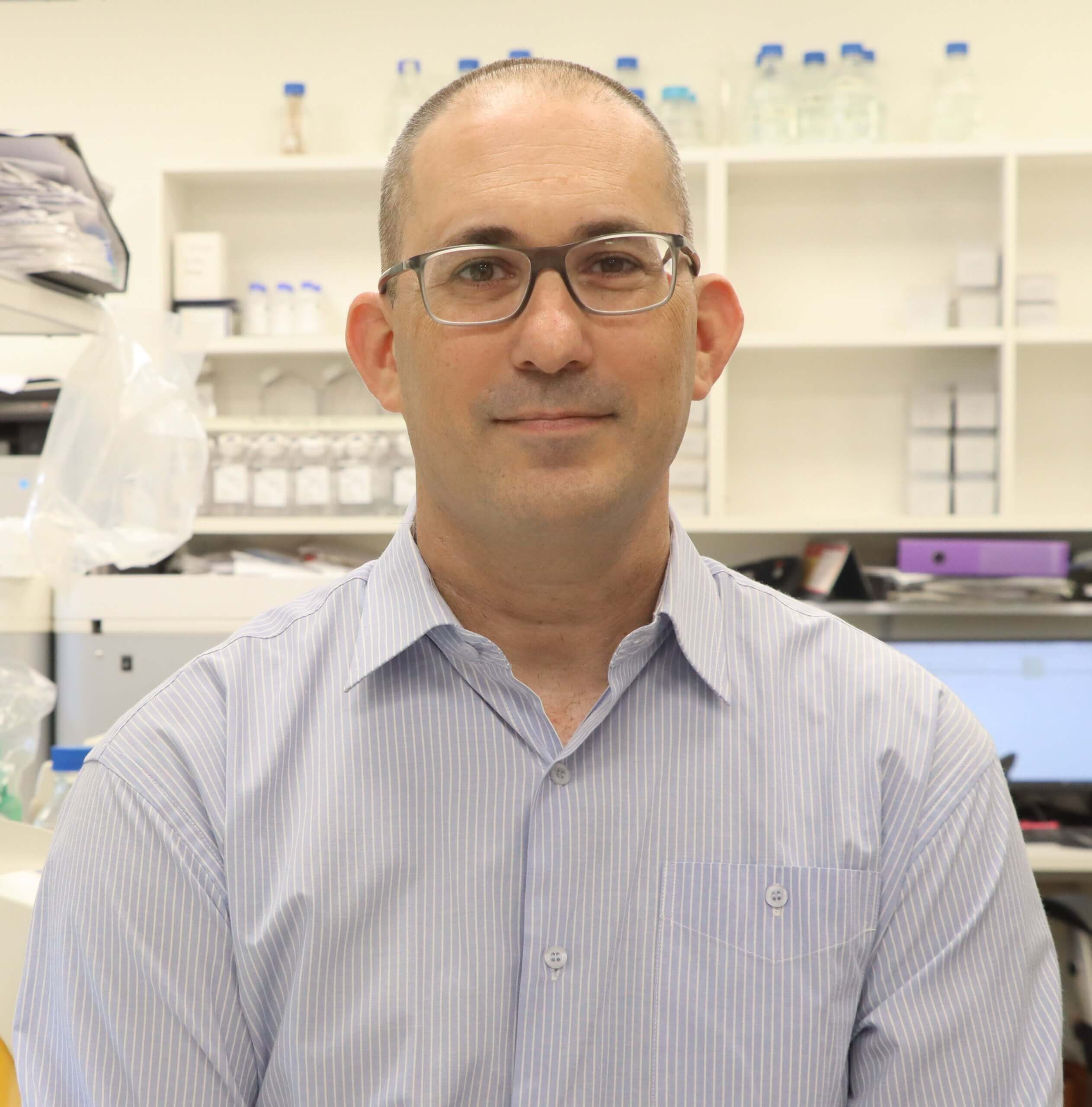New technology offers treatment for the HIV virus through an injection. As part of the research, the researchers succeeded for the first time in the world in engineering type B white blood cells inside the patient's body, so that they secrete antibodies to AIDS. The research was conducted on model animals with great success. All the model animals that received the treatment responded to the injection and had high amounts of the AIDS neutralizing antibody in their blood

A new study by Tel Aviv University offers a new and unique treatment for AIDS, which may be developed into a vaccine or one-time treatment for patients with the HIV virus. As part of the study, the engineering of type B white blood cells inside the patient's body was examined, so that they would secrete AIDS antibodies in response to the virus. The research was led by Dr. Adi Barzel and PhD student Alessio Nachmad, both from the School of Neurobiology, Biochemistry and Biophysics in the Faculty of Life Sciences and the Dotan Institute for Advanced Therapies in collaboration with Sorasky Hospital (Ichilov). The study was conducted in collaboration with other researchers from Israel and the USA. The study was published in the prestigious journal Nature Biotechnology.
In the last two decades, the lives of many AIDS patients have been improved following the administration of treatments that turn the disease from fatal to chronic. However, we still have a long way to go until a treatment is found that will bring permanent relief for the patients. A possible way to do so, by a single injection, was first developed in Dr. Barzel's laboratory. The technique developed in his laboratory makes use of type B white blood cells, which will be genetically engineered inside the patient's body and allow the secretion of antibodies that will act against the HIV virus that causes the disease, neutralizing it.
B cells are a type of white blood cells responsible for creating antibodies, among other things against viruses and bacteria. The B cells are formed in the bone marrow and when they mature they move to the blood and the lymphatic system and from there to the different parts of the body.

Dr. Barzel explains: "To date, few scientists, and we are among them, have succeeded in engineering B cells outside the body, and in this study we are the first to do this inside the body and cause these cells to produce desired antibodies. The genetic engineering is carried out with the help of viral carriers, which are derived from viruses that have been engineered so that they will not cause damage but will only be used to bring the gene that codes for the antibody into the body's B cells. In addition, in this case, we were able to precisely insert the antibodies into a desired site in the B cell genome. All the model animals that received the treatment responded and had high amounts of the desired antibody in their blood. We extracted the antibody from the blood and verified that it is indeed effective in neutralizing the HIV virus in the laboratory plate."
The genetic editing, explains Dr. Barzel, was done using CRISPR. This is a region in the DNA sequence of bacteria, which is used as part of their immune system and defense against viruses. The bacteria use CRISPR systems as a kind of molecular "search engine" to locate viral sequences and cut them in order to disable them. Two biochemists who deciphered the sophisticated defense mechanism of viruses using CRISPR, Emmanuelle Charpentier and Jennifer Doudna, succeeded in rerouting it in order to carry out genetic editing in human DNA, including disabling unwanted genes or correcting and replacing desired genes. Daudena and Charpentier received worldwide recognition when they were named the 2020 Nobel Prize in Chemistry.
Doctoral student Alessio Nicham expands on the use of CRISPR: "We combine CRISPR's ability to direct entry to desired sites together with the capabilities of viral carriers to bring desired genes to desired cells and thus we manage to engineer the B cells inside the patient's body. We use two viral carriers from the AAV family, one carrier codes for the desired antibody and the other carrier codes for the CRISPR system. When the CRISPR cuts at the desired site in the genome of the B cells, it incidentally directs the insertion of the gene that codes for an antibody against the HIV virus that causes AIDS."
Today, the researchers explain, there is no genetic treatment for AIDS, so the research opportunities are many. Dr. Barzel concludes and says: "We have developed an innovative treatment that may defeat the virus following a one-time injection and thus bring tremendous relief to the condition of patients. When the engineered B cells meet the virus, they are stimulated and encouraged by it to divide so that we use the disease agent itself to fight it. Furthermore, if the virus changes, the B-cells will also change accordingly in order to fight it, so we have created the first drug ever that can evolve in the body and beat viruses in the 'arms race'. Based on the research, we anticipate that in the coming years it will be possible to produce in this way a cure for AIDS, other infectious diseases and certain types of cancer caused by a virus, such as cervical cancer, head and neck cancer, and more."

4 תגובות
It's a shame they didn't give Ofra a chest
If it's real, it's nothing short of amazing.
This is a real step in the direction of personal genetic engineering of humans. It will take decades for it to develop into engineering, but if this step is really successful, engineering is getting closer.
The first thing to be engineered is cosmetics: how many people want blue eyes and don't have them?
In the future you will go to a beautician and come out with a genetic change for blue eyes.
Very quickly it will develop into glowing skin at night and all sorts of exotic things.
After that athletics and from there even the sky is not the limit.
How do you prevent that vaccine, which can evolve in the body, from becoming an autoimmune disease?
Amazing! Definitely important progress.
On the other hand, there have already been similar announcements in the past about a vaccine or a cure for AIDS, but unfortunately they did not develop into a commercial solution.
One can only hope that this research will indeed succeed where all others have failed, and help to finally produce a cure for this disease and many others.
And even if God forbid this does not lead to a cure, maybe at least the research will help the next group of scientists to continue researching and developing a cure.
Hope to read about positive updates here in a few years.